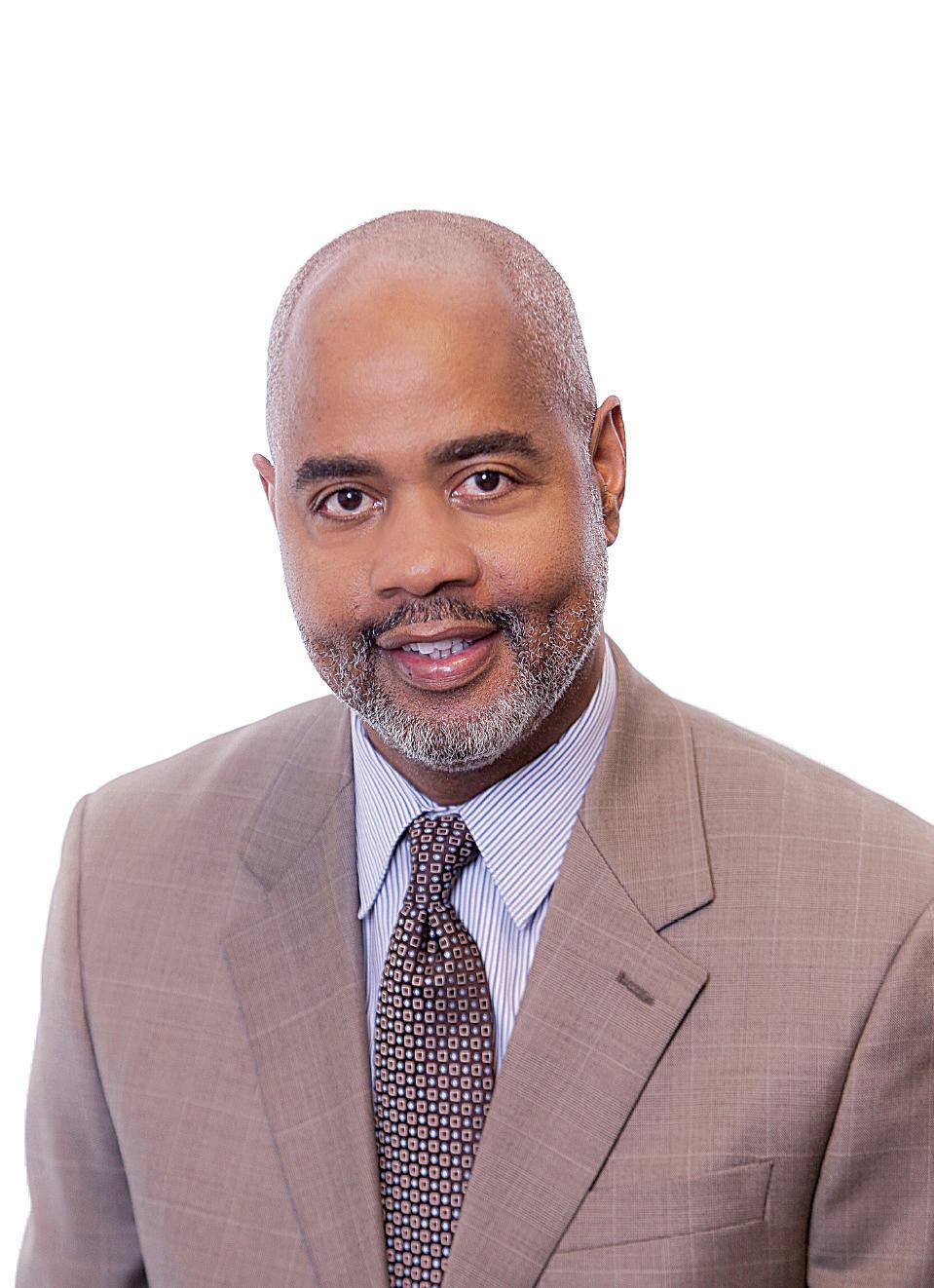
3 minute read
Atlanta doctor honored for COVID-19 work
By Donna Williams Lewis
Atlanta physician Dr. Dominic Mack has focused for years on the eradication of health disparities. Now, he’s using that expertise in the battle against the pandemic.
The Stone Mountain resident, who leads the National Center for Primary Care at the Morehouse School of Medicine, now also directs the National COVID-19 Resiliency Network, a cooperative agreement between the medical school and the Office of Minority Health of the U.S. Department of Health and Human Services.
In this role, Mack is assembling local, state and national partners to reduce the disproportionate impact of COVID-19 on vulnerable populations, including minority groups, seniors, the incarcerated, and people with disabilities.
For this effort, the Stone
50+ population. Its sixth annual awards program honors “advocates, researchers, thought leaders and innovators who are changing how we collectively age and think about aging.”
Mack, a senior himself at age 60, is joined on the Influencers list by 19 other honorees, including actor Michael J. Fox, Social Security Administration Commissioner Andrew Saul and Jean Accius, who is senior vice president of AARP Global Thought Leadership.
“I just said, ‘Thank you, Jesus.’ That’s really what I said,” Mack said, of the unexpected award.
“I’m honored. I think I was in the right place at the right time … doing the right thing.”
His path to medicine
Mack is an Augusta, Ga., native who grew up with a mother who inspired him from childhood to become a doctor. He particularly remembers her encouraging him to understand the life of a child with cerebral palsy who lived a few houses graduate of Paine College in Augusta,
He was also inspired by knowing several African physicians in the Augusta area, one of whom lived in his neighborhood.
Meharry Medical College in Nashville, Tenn., and did his residency in Family Medicine at Morehouse Medical School. He also earned an MBA from Kennesaw State University.
Mack has held a lengthy list of leadership roles within nonprofit and for-profit organizations including many years of service in federal healthcare centers. He is currently a professor of Family Medicine at the Morehouse medical school.
He became director of the college’s National Center for Primary Care in 2015, and started the National COVID-19 Resiliency Network at Morehouse with a $40 million, three-year competitive grant that came in July.
NCRN evaluates messaging and supplies education, training and other resources to a growing network of community partners experienced in working with underserved communities. Its goal is to lead vulnerable people to COVID-19 resiliency services, “to vaccinations, to testing, to critical social services, to the health services needed to help prevent and treat COVID,” Mack said.
Barriers to healthcare can be daunting.
Mack cited issues ranging from mistrust of the healthcare system, social barriers, and education and awareness levels to food insecurity, geographic location, mobility and lack of insurance.
“You know if you’re working three jobs to keep food on the table, there’s no time for healthcare. That’s not a priority,” he said.
A way forward
Health disparities have gained attention as COVID-19 rages.
In late July, Mack helped raise that awareness when he testified before the Senate Special Committee on Aging about the impact of COVID-19 on vulnerable communities.
But Mack is concerned that primary care is “kind of being put on the back burner.”
“Everything is so focused on COVID, but these are still the same communities that had more diabetes and hypertension, and during this time, to say it simply, the primary care is not continuing … whether it’s because the communities are staying home or because the health system is prioritizing visits, rightfully so,” Mack said.
“My hope is that, beyond COVID, we optimize this opportunity and develop a model which is really impactful on the community in a positive way and that we can make it a sustainable model that can pivot to address the chronic diseases and other preventable diseases in the community.”
For more information about NCRN, visit ncrn.msm.edu. See the full slate of the 2020 Influencers in Aging at nextavenue.org/ series/2020-influencers-in-aging.
DR. MACK’S COVID-19 ADVICE FOR SENIORS
“It really comes back to prevention. Of course, if you’re feeling sick, please seek treatment,” Mack said, offering the following advice:
■ Be smart and protect yourself.
■ Wear a mask. Social distance.
■ Be patient. “We just need to forgo these non-essential visits because this is a communicable disease. It lives by traveling from person to person,” Mack said. “Understand that what we see happening to others can also happen to us.”









